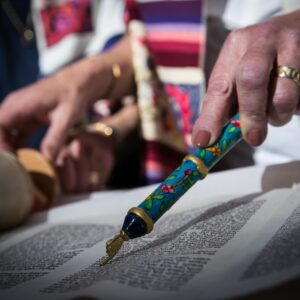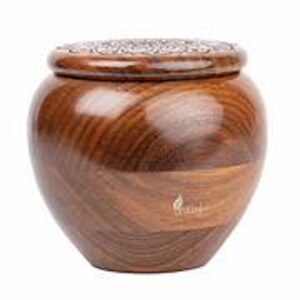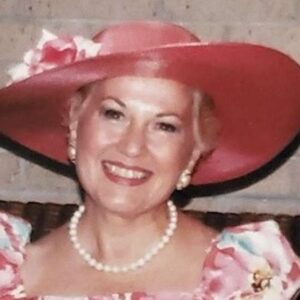On Yom Kippur, Jews practice a kind of erasure. The 26-hour fast: an erasure of food, physical sustenance. Abstinence: an erasure of sex, a life force. Not bathing: the erasure of personal hygiene. Dressing in all white, the color of our burial gowns: the erasure of the colors of impurity. We erase our ordinary ways of being. We erase the traces of our worldly selves. What’s left?
*
Declaration, n.
- The action of making clear or clearing up (anything obscure or not understood); elucidation, explanation, interpretation. Obsolete.
. . .
- A proclamation or public statement as embodied in a document, instrument, or public
act.
Declaration of Independence: the public act by which the American Continental
Congress, on July 4th, 1776, declared the North American colonies to be free and
independent of Great Britain; the document in which this is embodied.
(“declaration, n.” OED Online, Oxford University Press, accessed 12 September 2020)
*
In her “Declaration,” Tracy K. Smith, former U. S. Poet Laureate, uncovers another declaration, a story that lives within, inseparable from, the Declaration of Independence. To tell that story, the story of enslaved people, clearly, forcefully, Smith erases words from the dominant story.
He has
sent hither swarms of Officers to harass our people
He has plundered our—
ravaged our—
destroyed the lives of our—
taking away our—
abolishing our most valuable—
and altering fundamentally the Forms of our—
In every stage of these Oppressions We have Petitioned for
Redress in the most humble terms:
Our repeated
Petitions have been answered only by repeated injury.
We have reminded them of the circumstances of our emigration
and settlement here.
—taken Captive
on the high Seas
to bear—
Smith’s poem: history, politics, art. Is it also a spiritual act, freeing a voice that had been silenced, quieting the noise that it might be heard?
*
Like a nation’s foundational texts, a religion’s fixed prayer. Fixed prayer cultivates a way of being. It tells a story. Does it also hold another story within it, waiting to be revealed?
*
Every day for 51 days, from the beginning of the month of Elul through Rosh Hashanah and Yom Kippur, concluding on the last day of Sukkot, Jews read Psalm 27.
Of David. The LORD is my light and my help; whom should I fear? The LORD is the stronghold of my life, whom should I dread? When evil men assail me to devour my flesh— it is they, my foes and my enemies, who stumble and fall. Should an army besiege me, my heart would have no fear; should war beset me, still would I be confident. One thing I ask of the LORD, only that do I seek: to live in the house of the LORD all the days of my life, to gaze upon the beauty of the LORD, to frequent His temple. He will shelter me in His pavilion on an evil day, grant me the protection of His tent, raise me high upon a rock. Now is my head high over my enemies roundabout; I sacrifice in His tent with shouts of joy, singing and chanting a hymn to the LORD. Hear, O LORD, when I cry aloud; have mercy on me, answer me. In Your behalf my heart says: “Seek My face!” O LORD, I seek Your face. Do not hide Your face from me; do not thrust aside Your servant in anger; You have ever been my help. Do not forsake me, do not abandon me, O God, my deliverer. Though my father and mother abandon me, the LORD will take me in. Show me Your way, O LORD, and lead me on a level path because of my watchful foes. Do not subject me to the will of my foes, for false witnesses and unjust accusers have appeared against me. Had I not the assurance that I would enjoy the goodness of the LORD in the land of the living… Look to the LORD; be strong and of good courage! O look to the LORD! (JPS, 1985)
*
From confidence—”The Lord is the stronghold of my life”; “my enemies stumble and fall”—to vulnerability—”do not thrust aside Your servant in anger.” And from doubt—”Do not abandon me”—to tentative trust—”Had I not the assurance”—the psalm moves. It concludes with what seems to be another voice urging the psalm’s main speaker to draw on his/her inner strength and courage and not lose faith, even in a moment of uncertainty, in God.
Is there another story within the story of this familiar psalm? A story waiting for me to hear it this year? With Tracy K. Smith as my inspiration, I’m going to erase Psalm 27. I won’t labor over it. I’ll work quickly, intuitively. I’ll pay attention to what presents itself as I go.
*
Psalm 27 Erased
should I
devour flesh
Should my heart confident
shelter
my enemies
mother
against me
in the land of the living
O look!
*
Oh my. “Mother / against me / in the land of the living / O look!” How many years did I fear she would devour me? Thank God, thank God, that time has passed while my mother, 89, is still in the land of the living. I would not have seen it so clearly, I could not have said it—I fear you will devour me—had it not been for the Psalm 27 practice, and the new, for me, spiritual practice of erasing what’s known to reveal what’s concealed by the familiar.
*
Smith’s erasure of independence from the Declaration of Independence helps us see clearly and, one hopes, hold the whole story of America’s founding. My erasure of the Divine Addressee of Psalm 27 frees me to see more clearly and hold the whole story of my life with my mother.
And I do. I hold my mother’s presence even while we, because of COVID, are physically distant. I’m with her from the start. After leaving my birth-father, she’s alone with me, a newborn with a weak heart. Divorced woman in the 1950s, single mother of a sick child, she does not abandon me. Her love saves me. Maybe it saves her, too, living with what must have been her own fears, finding strength and courage to protect both of us in the land of the living. Yes, there were the years when, for whatever reasons, I believed I needed to protect myself from her. But, thank God, those years have passed.
In the land of the living: that’s where we seek wholeness. As I find wholeness in my personal life, I’m making my way, thanks to Tracy K. Smith, to wholeness in my American life. Maybe sometimes to see the whole story—personal, national—we need to erase some of what’s given to us so that we may reveal the story within the story, however ugly, disturbing, painful, shameful, horrific it may be. In that wholeness is where, I believe, this year more than ever, we encounter the Divine.
Richard Chess directed the Center for Jewish Studies at UNC Asheville for 30 years. He helps lead UNC Asheville’s contemplative inquiry initiative. He is a board member for the Center for Contemplative Mind in Society. He’s published four books of poetry, the most recent of which is Love Nailed to the Doorpost. You can find him at http://www.richardchess.com





